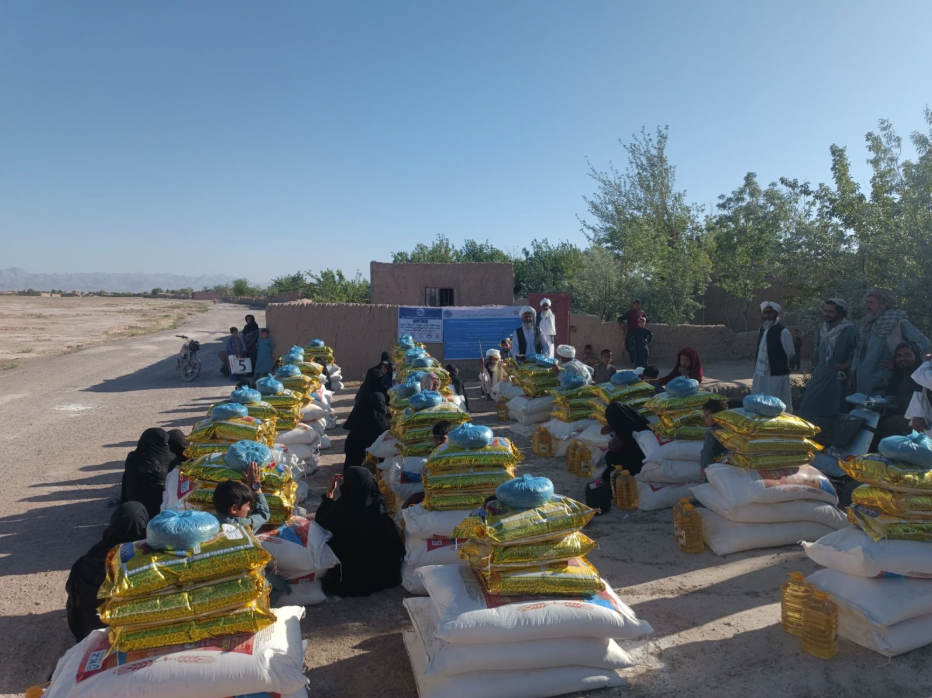
Delivering packages of hope to those left far behind: Abdul Wahid’s story
Delivering packages of hope to those left far behind: Abdul Wahid’s story

"There were nights I didn’t know how I would feed my children the next day. This food package... it's the first time in a long while I can breathe easy, knowing we won't go hungry." – Abdul Wahid
At 71 years old, the burden to provide for his family weighs heavily on Abdul Wahid’s shoulders. Abdul is disabled and fends for his wife and seven children- two young sons and five adult daughters. He lives in the remote village of Dewalek, in Mizan district, Zabul. The village, surrounded by a drought-prone landscape, is four kilometers from the district center. Dwindling agricultural productivity in that district has pushed many families into poverty and hunger. Without any income or skills to offer, they have relied on the charity of friends and neighbors. Abdul Wahid never knew where his next meal would come from.
“We were always waiting for help,” Abdul Wahid recalls, his voice heavy with years of strife and exhaustion. “I didn’t know how we would make it through the winter, whether we would have enough food, or if we would have to beg for help.”
The situation took a positive turn when the CRLP was introduced in his community. The multi-pronged approach in providing emergency livelihoods support, social grants and capacity building of community institutions means that the most vulnerable families like Abdul Wahid’s are not left behind. The project provides temporary job opportunities. Households that do not have any able-bodied members are supported through food packages. The food packages, which are calculated to support a family for up to three months contain rice, flour, beans and oil. It is a shot in the arm distributed in time to see these families through the harsh Afghanistan winters.
“The community selected our family because they knew how hard our life was,” Abdul Wahid shares. “We’ve always depended on others to survive. This is different, it is the first time that a donor has come here. I can’t express how relieved I felt when I got the food. It’s hard to explain, but it feels like a burden has been lifted from me,” he says, overwhelmed with emotion.
Since the project began, 104,372 households have received food packages in rural communities. 57% of them are female-headed. The women heading these households have lost their husbands to death or drug addiction. Others have surviving husbands who are unable to care for their families due to disability. As economic opportunities continue to shrink in rural areas, CRLP is helping families to meet basic needs and contribute to food security and nutrition.
×
![]()